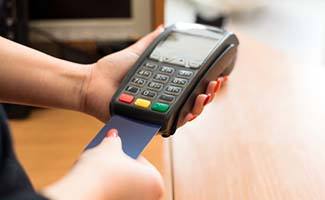Cryptocurrency Debit Cards Bridging The Virtual And Real World

Cryptocurrencies, led by Bitcoin, have grown in popularity in terms of numbers, interest, investments, user base, trading volume, price and market capitalization.
While these blockchain-backed currencies hold great promise in terms of revolutionizing the existing systems, the "usability factor" of these cryptocurrencies stands in the way of their wider adoption. This is largely owing to the regulatory ambiguity and limited merchant acceptance (in direct form).
Cryptocurrency debit cards give users the freedom to pay in the virtual currency just like any normal transaction. The ability to use cryptocurrencies for transactions in our day-to-day lives—directly without pre-conversion into fiat—at regular stores, restaurants, or gas stations—can be the tipping point that merges the crypto and real world.
Cryptocurrency debit cards function like clones of fiat debit cards in terms of simplicity, ease of use and acceptance. The issuers have mobile applications for contactless payments with a Near Field Communication (NFC) checkout terminal as well as physical debit cards for use at the point-of-sale (PoS). The payments are carried out in collaboration with a payment gateway (Visa or MasterCard), making it very convenient for cryptocurrency investors to use their tokens at millions of locations globally.
The existing infrastructure provided by payment giants such as Visa and MasterCard is used by cryptocurrency debit cards to enable payments without any additional work on the merchant’s end. Thus, the customer pays in a chosen cryptocurrency -- say Bitcoin or Ethereum -- but the merchant receives the fiat, like US dollar or Euro.
Cashless Medium
Visa (V) and MasterCard (MA) dominated 54% ($139 billion) and 26% ($67.3 billion) of the purchase transactions on global cards during 2016 as per a Nilson report. During 2016, the credit, debit, and prepaid card transactions for goods and services worldwide reached $257.17 billion for Visa, UnionPay, MasterCard, JCB, Diners/Discover, and American Express.
These figures are based on the number of merchants and customers going cashless. “Approximately a third of U.S. merchants are now enabled to take chip cards and about three quarters of consumers have at least one chip card in their wallet,” according to the U.S. Payments Forum (October 2016).
Interestingly, both Visa and MasterCard have been experimenting with blockchain for payments since sometime now. The two have even filed patents for blockchain-based transaction systems. A patent filings by MasterCard reveals an application for an “information transaction infrastructure” that enables “transactions and refund” in cryptocurrency. While Visa’s recent patent application related to “methods and systems for using digital signatures to create trusted digital asset transfers.”
Providers
While the concept of such cards has been around for about two years, the surge in the activity in this space has created more excitement and interest in such products.
Currently, there more than thirty such crypto debit cards in operation, with each one offering a different fee structure, cryptocurrency and fiat support, maintenance changes and so on.
Back in 2015, Coinbase launched the first ever U.S. Bitcoin debit card. The company has recently raised $100 million in Series D funding, primarily led by IVP, which helped it enter the “unicorn” club in the venture capital industry.
TenX, a Singapore-based company, is integrating Bitcoin, Ethereum (including ERC20) and Dash for payments across Visa as well as MasterCard network, and offers incentives on every purchase which are paid to users in its own tokens—PAY.
Soon to be launched OCASH crypto card will allow token holders to use Stablecoins (SmartCoins), including bitUSD, bitEUR, bitGBP, and Rubles—plus other OpenLedger tokens such as OBITS, Bitcoin, and Ethereum (including ERC20)—to purchase items anywhere. OCASH will thus enable the practical use of a number of tokens.
Monaco which supports Bitcoin and Ethereum spending claims, “Every time you spend with the Monaco Card, you will be given perfect interbank exchange rates without markups or fees. In practice that means savings of €30-40 on every €500 spent, compared to high street banks.” There are other providers in the market such as Xapo, Wirex, BitPay, Cryptopay, CoinsBank.
Final Word
While there are issues to be resolved around cryptocurrencies, such as volatility in price, regulatory treatment, and so on, the direct usability of these blockchain assets is a critical barrier holding back their wider adoption. In the times to come, cryptocurrency debit cards will play an important role in narrowing the gap between the crypto and real world, if not bridging it completely.